We have much more to do and your continued support is needed now more than ever.
Affiliate of the Week: Texas Conservation Alliance

In honor of our 80th Anniversary celebration throughout 2016, the National Wildlife Federation is recognizing each of our Affiliate Partners in a special “Affiliate of the Week” blog series that showcases the dedicated conservation efforts taking place across the country each day. This week we celebrate our affiliate, Texas Conservation Alliance, and their commitment to wildlife.
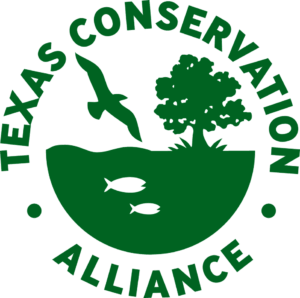
Who We Are
Texas Conservation Alliance (TCA) has spent more than four decades protecting rivers, forests, and other wildlife habitats in Texas. TCA has been instrumental in public protection of more than half a million acres in parks, refuges, and other wildlife areas. Their water resources work has found alternatives to dams that together would have permanently inundated more than 100,000 acres.
What We Do
Many of Texas Conservation Alliance’s programs focus on protecting two of Texas’ most precious resources: its beautiful rivers and diverse forests. TCA opposes unnecessary dams, promotes the designation of river segments as State Paddling Trails, provides extensive input into state water planning, and holds outdoor events to bring people closer to nature.
As part of its work for forests, TCA nominates areas of the national forests in Texas as Special Management Areas to protect sensitive habitats, scenic features, and areas with high ecosystem, research, or recreational values. TCA builds coalitions of often non-traditional allies to accomplish these conservation projects. TCA’s affiliation with the National Wildlife Federation connects their fifty member groups with national issues and with the NWF affiliate network.
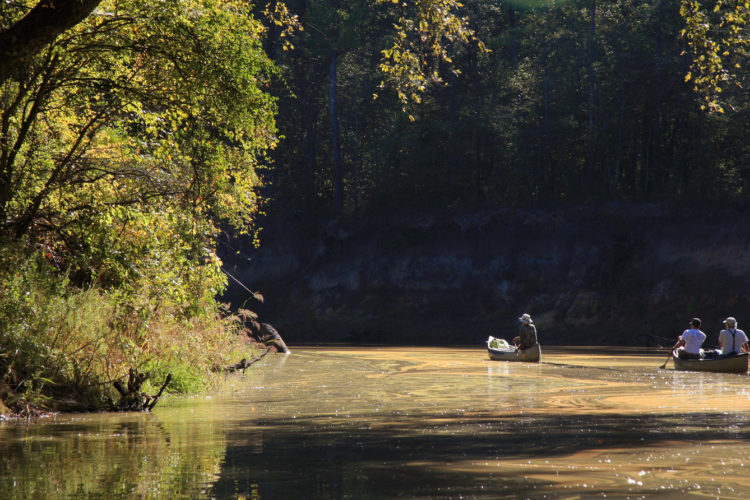
Making a National Impact
The nation’s burgeoning population and the increasing frequency of extreme weather events make decisions about water development crucial for a healthy future for people and wildlife. Recycling municipal wastewater is a safe, cost-effective, sustainable way to obtain new water. Texas Conservation Alliance is currently promoting construction of a municipal water recycling facility in the Dallas-Fort Worth area that would purify wastewater to better than drinking water standards.
The high-tech membranes used in ultrafiltration and reverse osmosis effectively filter out the bacteria, viruses, and other harmful organisms left after sewage is treated. These filters, combined with ultraviolet light and routine chemical disinfection, produce water much purer than normal tap water – at a much lower cost than building new reservoirs.
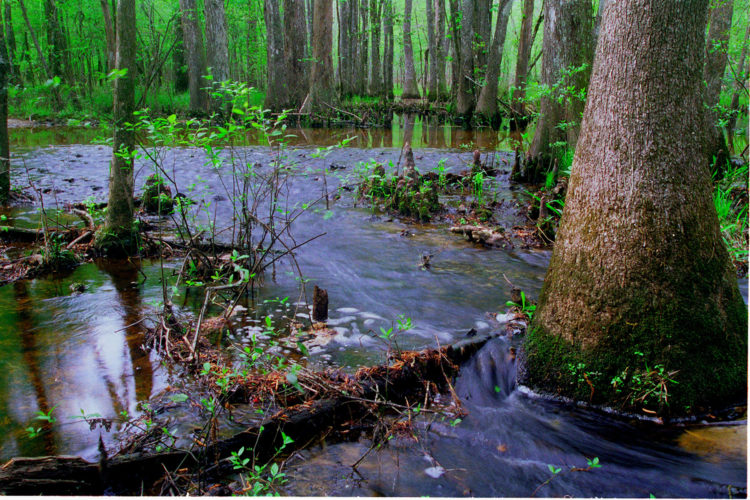
New reservoirs proposed for the Dallas-Fort Worth region would drown 125,000 acres of prime bottomland hardwood forests, destroying vital wildlife habitat. These reservoirs would force people off their land and in some cases out of their homes, and be devastating for rural economies dependent on agriculture and timber. Water recycling is the wave of the future – the alternative that will avoid inundating river habitats and building hundreds of miles of pipelines.
Even a small membrane recycling facility in a remote area is big news in the water development industry. A ten million gallon per day facility in the DFW area would make international headlines and serve as a model to encourage water recycling in drier areas throughout the world.
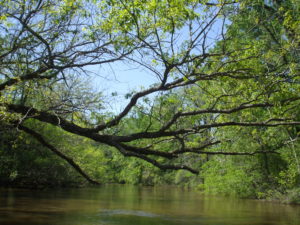
Municipal water recycling’s benefits include:
- Lower cost than most other water supply options
- Avoids costly new reservoirs that flood crucial bottomland habitat
- Can be implemented gradually, as demand for water grows
- Allows cities to re-use water they already own, reducing permitting and uncertainty
Click here to learn more about water recycling and view TCA’s videos. Then encourage water utilities in your home state to conserve water and protect wildlife by implementing water recycling projects.
Get Involved
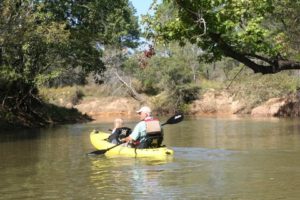
Join Texas Conservation Alliance for a fun day in the woods September 24, at Ratcliff Lake Recreation Area in the Davy Crockett National Forest. You’ll have the opportunity to get acquainted with the beautiful Neches River, saved from being dammed by creation of the Neches River National Wildlife Refuge.
Connect with TCA
Connect with Texas Conservation Alliance to get their latest news and keep up with their conservation efforts through Facebook, Twitter, or by visiting their website.






















